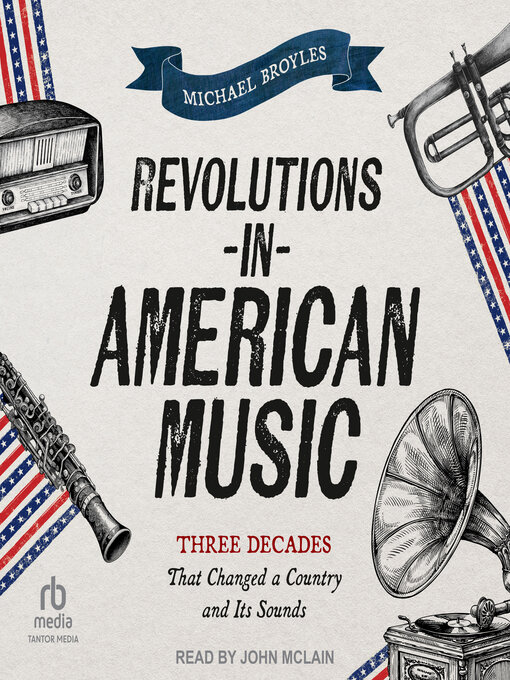Revolutions in American Music
Three Decades That Changed a Country and Its Sounds
In Revolutions in American Music, award-winning author Michael Broyles shows the surprising ways in which three key decades—the 1840s, the 1920s, and the 1950s—shaped America's musical future. Drawing connections between new styles of music like the minstrel show, jazz, and rock 'n' roll, and emerging technologies like the locomotive, the first music recordings, and the transistor radio, Broyles argues that these decades fundamentally remade our cultural landscape in enduring ways. These connections revealed racial fault lines running through the business of music, in an echo of American society as a whole.
Broyles combines broad historical perspective with an eye for the telling detail and presents a variety of characters to serve as focal points, including the original Jim Crow, a colorful Hungarian dancing master named Gabriel de Korponay, "Empress of the Blues" Bessie Smith, and the singer Johnnie Ray, whom Tony Bennett called "the father of rock 'n' roll." Their stories, and many others, animate Broyles's masterly account of how American music became what it is today.
-
Creators
-
Publisher
-
Release date
February 20, 2024 -
Formats
-
OverDrive Listen audiobook
- ISBN: 9798855508116
- File size: 391500 KB
- Duration: 13:35:37
-
-
Languages
- English
-
Reviews
-
Publisher's Weekly
December 11, 2023
Broyles (Mavericks and Other Traditions in American Music), a musicology professor at Florida State University, explores in this vibrant history how race and technology drove drastic changes in American music during the 1840s, 1920s, and 1950s. According to Broyles, the popularization of minstrelsy in the 1840s marked the growth of the “first popular genre that was distinctly American,” presenting racist depictions of Black Americans that appealed particularly to Irish Americans who were often in competition with free Blacks for work. The development of the phonograph in the late 19th and early 20th centuries proved pivotal to jazz’s surging popularity in the 1920s, Broyles contends, noting that “no sheet music could adequately capture what happened on those records.” In addition to profiling such legends as Louis Armstrong, Bessie Smith, Little Richard, and Elvis Presley, Broyles also highlights the contributions of lesser-known figures, suggesting that white proto–rock n’ roller Johnnie Ray’s packaging of Black singing styles for white audiences in the early 1950s paved the way for Presley to do the same later that decade. The trivia captivates (Armstrong played cornet so loudly “he had to stand some fifteen feet behind the band” when recording so he wouldn’t drown them out), and Broyles’s discerning analysis illuminates how complex social and technological factors interacted to shape the course of American music. This hits all the right notes. Photos. -
AudioFile Magazine
This detailed and well-organized account of American music's most prominent evolutionary decades--the 1840s, 1920s, and 1950s-- provides a fascinating overview of the way popular music changed in response to a variety of factors over the past 180 years. While artists arriving from Europe were influential at the start of the 1800s, music also came to change because of well-established ethnic groups, the visceral power of American culture in the 1920s, and the unmistakable impact of jazz and popular Black artists on pop music in the 1950s. John McLain's enunciation patterns keep everything clear. Although they don't have enough dramatic variation to highlight the broad thematic shifts in this rich cultural history, his baritone pitch patterns sound natural and pleasing in themselves. T.W. © AudioFile 2024, Portland, Maine
-
Loading
Why is availability limited?
×Availability can change throughout the month based on the library's budget. You can still place a hold on the title, and your hold will be automatically filled as soon as the title is available again.
The Kindle Book format for this title is not supported on:
×Read-along ebook
×The OverDrive Read format of this ebook has professional narration that plays while you read in your browser. Learn more here.


